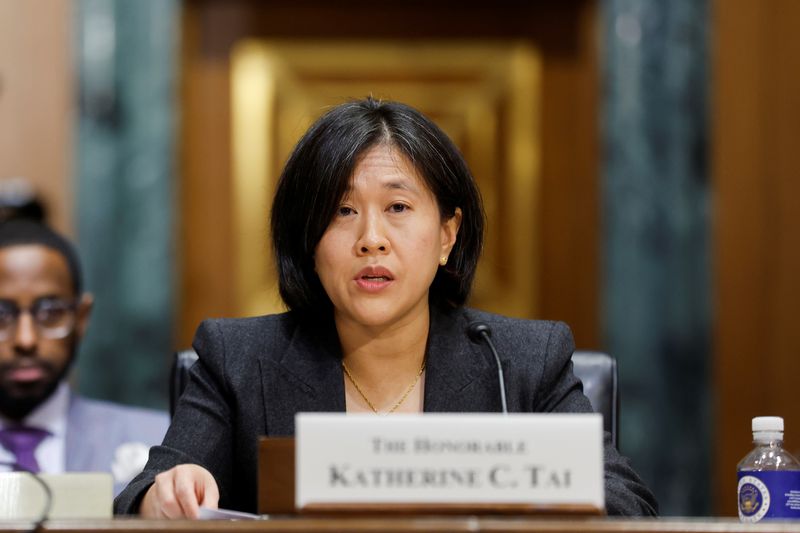WASHINGTON (Reuters) -A contingent of six U.S. senators led by Democrats on Tuesday chastised U.S. Trade Representative Katherine Tai about her handling of negotiations on COVID-19 vaccine intellectual property rights, saying she had failed to consult them.
The members of the Senate Finance Committee, including Chairman Ron Wyden and two other of Tai’s fellow Democrats, said in a letter https://www.finance.senate.gov/imo/media/doc/05102022%20USTR%20Consultation%20and%20Transparency%20Letter.pdf she had not complied with requirements to inform and consult them.
The United States, the European Union, India and South Africa reached a compromise on May 3 that could lead to a broader World Trade Organization deal on intellectual property rights on COVID vaccines aimed at increasing vaccine production in developing countries. The proposal is now being discussed among the WTO’s 164 member countries.
“USTR’s announcement of the outcome preceded its informing Congress of the specifics of the compromise or sharing text of the proposal,” the senators wrote.
The group said it wanted to make sure the administration of Democratic President Joe Biden did not similarly fail to consult Congress about other trade negotiations such as at the WTO or bilateral talks with Britain.
“USTR takes our commitment to transparency and consultation with Members of Congress extremely seriously,” USTR General Counsel and Chief Transparency Officer Greta Peisch said in a statement.
“We have routinely consulted Congress and sought input from stakeholders as the administration works to facilitate an outcome on intellectual property at the WTO,” Peisch said, adding that such efforts would continue to increase before a final agreement is reached on the WTO waiver.
The senators, who also included Democrats Robert Menendez of New Jersey and Catherine Cortez Masto of Nevada and Republicans Mike Crapo of Idaho, Chuck Grassley of Iowa and Ben Sasse of Nebraska, said that regardless of whether negotiations lead to changes in U.S. law, USTR has an obligation to engage in “meaningful” consultations with Congress on specific proposals.
(Reporting by David Lawder; Editing by Cynthia Osterman and Richard Pullin)






















